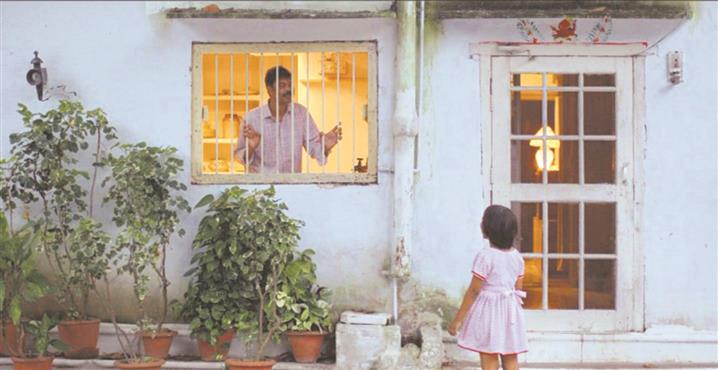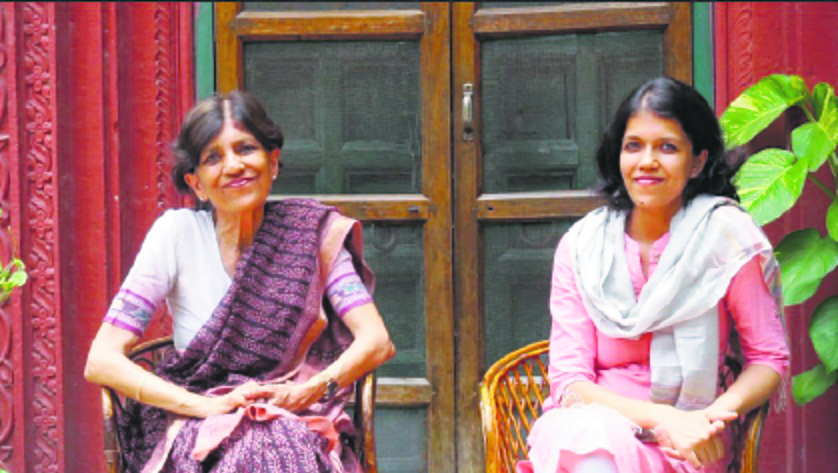
Irfana Majumdar’s Shankar’s Fairies at Locarno Film Festival
Saibal Chatterjee
The sole Indian film that competed for a Golden Leopard at this year’s Locarno Film Festival, Shankar’s Fairies heralds the arrival of an exciting new voice in sub-continental cinema. The director, Varanasi-based Irfana Majumdar, brings to the job a freshness of approach that springs from her non-cinematic background. The festival, which specialises in showcasing arthouse cinema from across the world, is one of Europe’s longest-running cinema events, launched immediately after the end of World War II. The Swiss festival, which lasted for two weeks, concluded yesterday.

Majumdar, a theatre director and solo performer, draws from “the childhood memories” of her historian-mother Nita Kumar, who is also the film’s scriptwriter, to craft a tale that probes divisions long entrenched in Indian society — between rich and poor, master and servant, city and village.
Set in Lucknow in the early 1960s, Shankar’s Fairies is about the nine-year-old daughter of a senior police officer and her bonding with a family retainer, a down-to-earth man from a village. “I would want it to strike people that so many decades later, the situation is exactly the same,” says Majumdar about the multiple fissures that her film examines.
The film is first and foremost an intimate portrait of a family and a girl discovering the power of stories to transport to a world beyond her own. But Shankar’s Fairies is also a look at a newly Independent nation’s engagement with notions of modernity, equality and solidarity within the context of a social fabric intrinsically resistant to change.
At the core of the film is a child’s innocence and curiosity. But it also conceals resignation and an unquestioning adherence to rules represented by the servant, who lives in the outhouse of a bungalow and is always at the beck and call of the family.
A war is on with China and soldiers are dying on the border. The adults are exercised over the situation but for the little girl, the stories that Shankar the housekeeper and cook tells her are an indescribable source of joy.
The calm, understated storytelling style that Majumdar employs masks a sharp critique of an entrenched structure that, despite the seemingly enlightened people who are at its helm, allows unequal, exploitative equations between the powerful and the dispossessed. “The contrast,” says Majumdar, “is between Shankar, a villager with few possessions, and a bungalow full of items carefully collected over the years.”
Shankar’s Fairies juxtaposes a life of privilege with a life that forces a man to leave his family and village in search of employment in a city. The village of the servant is barely seen in the film because its contours are determined largely by the girl’s imagination. The bond between the police officer’s daughter and the servant hinges on stories that the latter narrates about his growing-up years in the village, with their complement of fairies, djinns and other magical creatures. These tales invigorate the girl’s imagination and make up for her lack of personal exposure to village life.
The film was shot in the house where her grandfather retired in the 1980s. The cast has a mix of trained performers and non-actors. “The main actor, Jaihind Kumar, lived in the house and worked as an undercover servant in preparation for the role,” says the director. The role of the girl’s mother is essayed by Irfana Majumdar herself while the police officer’s character is played by her husband Gaurav Saini, who also served as casting director, associate director and acting coach.
Both in the manner in which it has been filmed and acted, Shankar’s Fairies stands apart. Its framing is static and the acting lifelike. “Not having any camera movement at all is a little bit old-fashioned but it allowed us to put each character within a clear context. So, we do not have close-ups or compositions with a single character highlighted as a person,” explains Majumdar. On the acting front, too, the film has an unhurried, pensive quality. Says Majumdar: “I don’t like the way acting is done in most Hindi films… I wanted the acting in Shankar’s Fairies to feel… well, I don’t like the word realistic because that would be tied to a particular style. I have worked in theatre. When I work with actors, I favour a style that is not melodramatic.”
Stay connected with us on social media platform for instant update click here to join our Twitter, & Facebook
We are now on Telegram. Click here to join our channel (@TechiUpdate) and stay updated with the latest Technology headlines.
For all the latest Entertainment News Click Here
For the latest news and updates, follow us on Google News.

